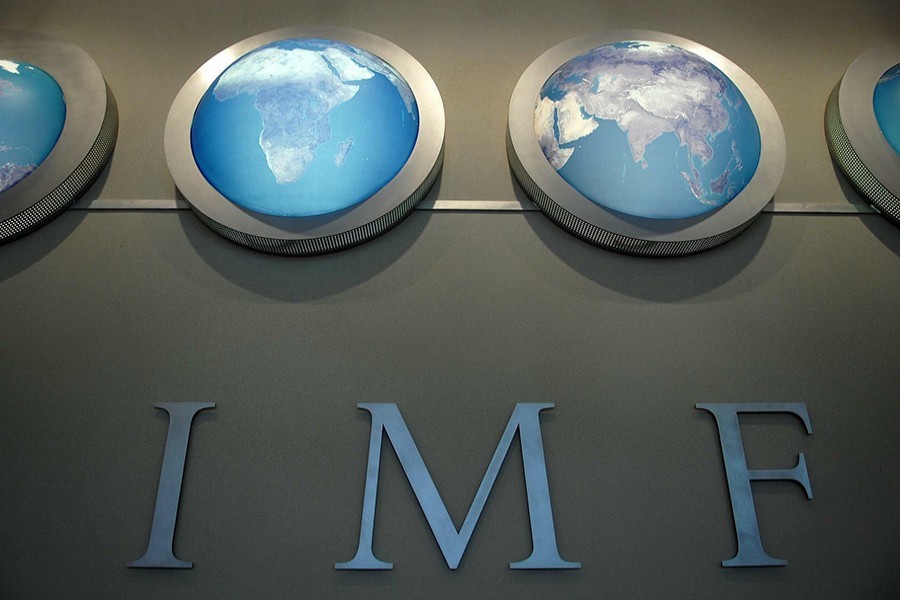Underlining the importance of overhauling the banking sector, the International Monetary Fund, or IMF, has said only a sound financial system can speed up an economic rebound as Bangladesh battles the coronavirus pandemic.
"… reforming the banking sector is one of the top priorities for the government to enhance the resilience of the economy," said Anne-Marie Gulde-Wolf, the fund's Asia Pacific deputy director.
Winding up the last Article IV mission consultation, the IMF voiced concern over the continued weak financial situation in the banking sector, including high non-performing loans and the rising amount of restructured and rescheduled loans.
The fund called for "resolute steps" to enhance banking regulation and supervision, reform state controlled lenders, tighten the criteria for loan rescheduling and restructuring, strengthen banks' corporate governance, and enhance legal systems to speed up loan recovery.
Soured credit, which has topped Tk 1.0 trillion in recent times, has been an albatross around the neck of the poorly-policed banking sector, though the economy has grown over 6.0 per cent in the past decade or so.
Ms Gulde-Wolf's comments came just after the IMF's World Economic Outlook predicted Bangladesh's GDP growth would crash to 2.0 per cent during the 2020 fiscal year, the deepest dive in decades and significantly lower than the global monetary watchdog's projection of 7.6 per cent.
She responded to e-mailed questions close on the heels of the virtual Spring Meeting of the IMF.
The IMF's projection is almost similar to that of the World Bank, its Bretton Woods peer, which forecast the country's economic growth would be between 2.0 and 3.0 per cent this fiscal year.
Explaining the reasons behind lower economic growth forecast, the IMF Asia Pacific deputy head said domestic activity is projected to decline as necessary policies to limit the spread of Covid-19, including the national shutdown since March 26, have been implemented.
On the external front, the IMF said the textiles and clothing industry, which makes up more than 80 per cent of the country's exports, has already been hit hard by substantial order cancellations.
As of Thursday, global retailers cancelled or put on hold textiles orders worth $3.16 billion, threatening the employment security of 2.2 million workers, according to the lobby group Bangladesh Garment Manufacturers and Exporters Association.
Trade unions estimated that apparel plants sliced as many as 30,000 underpaid garment jobs in the past four weeks alone.
Since March, inflows of workers' money, known as remittances, have started falling. Remittances slumped by nearly 12 per cent to $1.29 billion in March versus $1.46 billion in the same month a year earlier, according to the central bank data.
As uncertainties loom, the government needs to address the health crisis and ride out the economic storm with fiscal and monetary interventions, said Ms Gulde-Wolf.
For example, she said, fiscal policy should aim to aid households and businesses hit by the pandemic, including through targeted cash transfers, wage support, and tax relief.
Monetary policy should ensure there is sufficient liquidity in the banking sector, particularly for smaller enterprises, she added.
Bangladesh has already announced Tk 827.50 billion relief packages, equal to 3.25 per cent of GDP, to tide over the coronavirus crisis.
But she said, "Efficient financial resource allocation with an effective banking sector would help accelerate the recovery from the Covid-19 shock," and "restore the robust growth momentum."
The country's economy expanded at a rate of 8.15 per cent during 2019 fiscal year in what the Asian Development Bank rated as the highest in the continent plus the Pacific region.
The fund, however, reminded policymakers of downsides of lending to bankroll rescue package, warning that the pandemic would lead to a higher debt-to-GDP ratio compared to the pre-pandemic projection of 35.2 per cent.
The government's debt as percentage of gross domestic product reached 33.5 per cent during fiscal year 2019, compared with 33.2 per cent the year before. It rose slightly higher than 34 per cent in Aug 2019, with domestic borrowing alone accounting for 21.4 per cent.
Analysts estimated that the government's bank borrowing would reach Tk 600 billion by June this year.
"This implies that the long-standing challenge to raise tax revenues will become even more important," said the IMF's senior official.
At 10 per cent, taxation as percentage of GDP is among the lowest in the region, even lower than Nepal's. In the seven months to January, tax receipts amounted to Tk 1.26 trillion, down from Tk 1.64 trillion the National Board of Revenue aimed to collect.
The IMF senior executive, however, predicted that the Bangladeshi economy would rebound next year, with exports and remittances gaining momentum by December 2021.
Given the unprecedented and challenging times, Ms Gulde-Wolf advised the government to reach out to overseas financiers since the country's debt-to-GDP ratio is still relatively low.
Bangladesh, she noted, has "some room" to rely on external financing to blunt the negative impacts of Covid-19, a pneumonia-like illness caused by novel coronavirus.
In addition to $700 million as emergency credit from the IMF, Bangladesh has turned to the World Bank seeking $500 million as fears deepened over widening budget deficit and straining balance of payments.
The IMF has received a request from the Bangladesh government for financing support under its rapid credit facility or its rapid financing instrument, which are designed to address emergency situations such as the COVID-19 pandemic, the fund official said.
The fund is currently assessing the impacts of the COVID-19 shock on the Bangladesh economy and its balance of payments and "stands ready and makes every effort to support the government through its available tools," she added.


